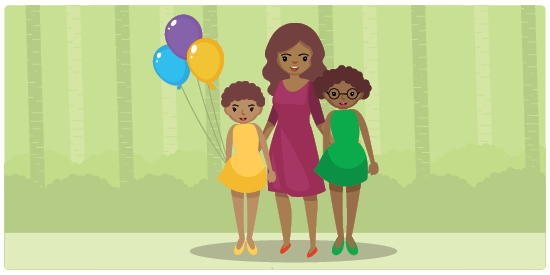 In fleeting limbo between the innocence of childhood and the responsibilities of adulthood, teenagers are easily stereotyped as moody, rebellious, and brooding. In truth, there’s a lot we can learn from their way of looking at the world.
In fleeting limbo between the innocence of childhood and the responsibilities of adulthood, teenagers are easily stereotyped as moody, rebellious, and brooding. In truth, there’s a lot we can learn from their way of looking at the world.
I have loved my daughters at every age, but I’m particularly loving them as teenagers. Sure, teenagehood comes with challenges, and it’s not always easy, but there are days when I look at them and marvel at the brave, thoughtful, inspiring women they are becoming.
There’s something about the ‘in-betweenness’ of being a teenager that allows them to see things quite clearly, I think. These not-quite-children-not-quite-adults are busy finding out who they are, and how they fit into the world before too many labels have been attached to them.
They don’t yet have to bear the tedium of that standard small talk question: “So, what do you do?” As if the answer defines who the speaker actually is. They also retain that ability of small children to see through all the nonsense we adults add to quite simple things – to challenge the status quo, call things as they see them.
So I watch my girls, and I learn. I learn things I should never have forgotten. Here’s what I’m re-learning.
First, they teach me to be more spontaneous. My kids will make plans on the spur of the moment because they’re focused on the fun – not the arrangement. I, however, have become the kind of person who needs advance warning of everything. Two weeks minimum, sometimes more.
Part of that is a product of having to juggle a million things as a single mother who runs her own business, but I never used to be quite so anal about it. There was a time I’d just decide on a whim to go to a movie, pop in to see a friend, or have them come and see me. And it really doesn’t matter if the house is a mess, or you don’t have a biscuit to give them with their coffee – those things are really unimportant.
Which brings me to the next thing: those things are really unimportant. If your friends love you, they’ll look past the unwashed dishes or the pile of unfolded laundry. Chances are, their houses look the same. They haven’t come over to marvel at your culinary expertise – they’ve come to spend time with you. The rest is just window dressing. Take a look at my teenagers’ bedroom floors at any point during the day, whether someone is visiting or not, and you’ll see what I mean.
Both of my daughters are diligent, but their organisational styles are really different, and that has reminded me that my way is not the only way. If you leave people to be who they are, and do what they do, most of the time things will get done.
Also, regardless of how organised you are, sometimes things won’t get done – and that’s okay too. Assignments have not been handed in on time, test results have been below what they could have been sometimes: the world still spins on its axis and stars have not fallen out of the sky.
Because most of our to-do lists are not nearly as important as we think they are, and yet we allow them to run our lives: to drive us into too much stress, too much pressure, too much work and not enough play. And you’ll note I said, “we allow” – if we’re honest, most of that stuff comes from our own lack of boundaries – with others and ourselves. We get what we allow.
Watching one of my daughters has reminded me that perfectionism is one of the most destructive forces on earth. Good enough is usually good enough. Good enough will keep you from burnout. And your good enough is probably better than many other people’s very best. It’s all about perspective.
Together they have taught me that when people are in crisis, it’s the simple things that help. On those nights when I am so exhausted that the smallest thing reduces me to a pathetic, weeping mess, they are both on hand for a hug. The elder daughter says, “I’m sorry.” The younger one makes me tea. And they send me to bed. And so I learn that when people have a problem, they’re not looking for solutions. They just need to be heard, to be seen – and a cup of tea, a hug and an early night are never a bad idea.
Finally, they’ve reminded to stick by my friends, but also to call them out on their actions when necessary. They call me on mine all the time, which is humbling, but they’re usually spot on. Parents have a nasty habit of allowing that ‘do as I say, don’t do as I do’ hypocrisy to creep in.
I wonder, often, how much emotional and physical abuse, how much fraud and corruption, how much racism and sexism and other bigotry could be halted if we all – male and female – just called our friends out on their behaviour when we observe them behaving badly.
People tend to dismiss the opinions of young people, citing their lack of experience as evidence that they don’t know what they’re talking or about, or accuse them of being overly idealistic, “because that’s not the way the world works”. When I look at the two fledgling women at my kitchen table each night at dinner, I think we’d be a lot better off if the world worked differently – and teenagers might just have some of the answers.

Leave a Reply